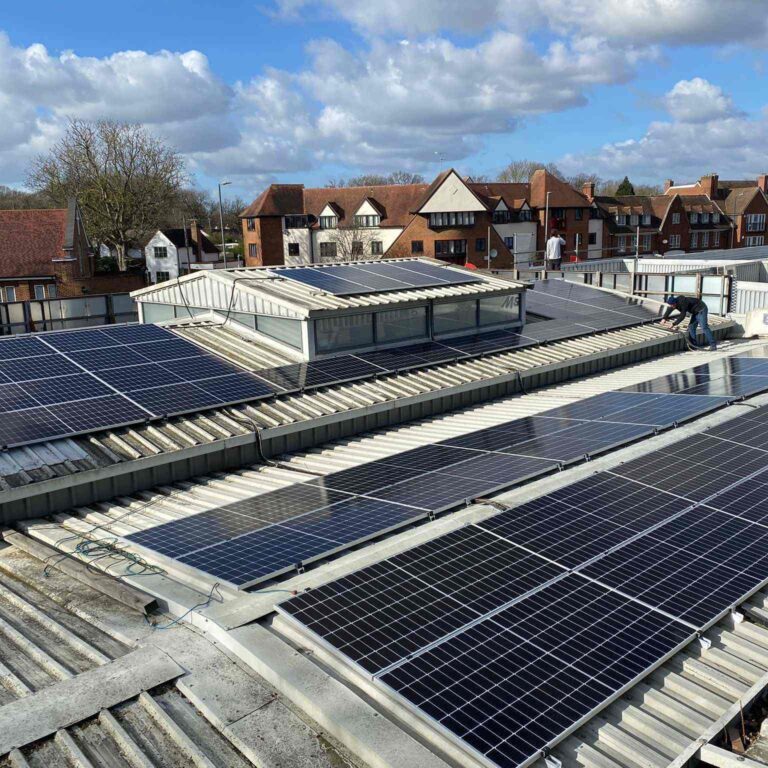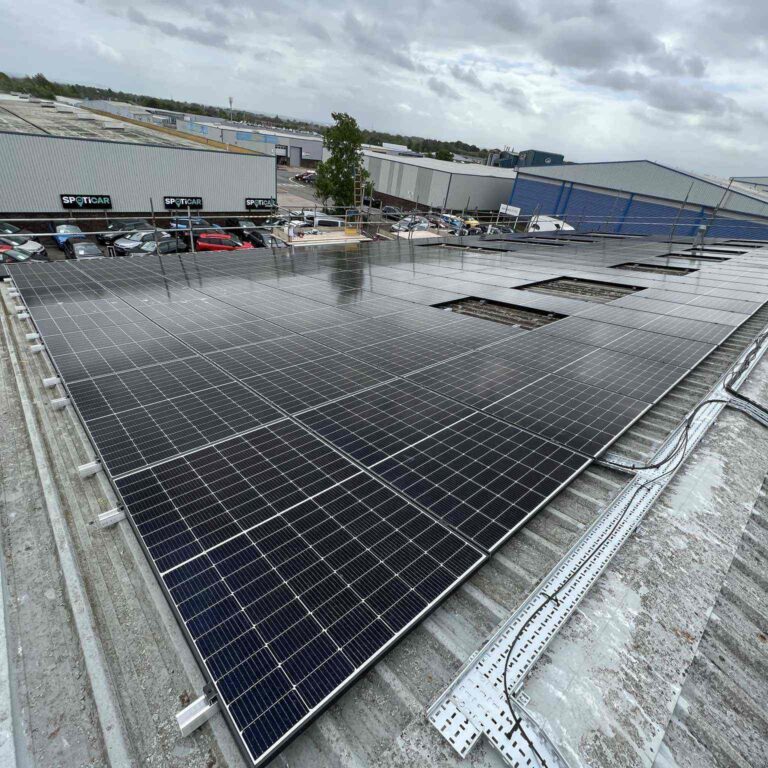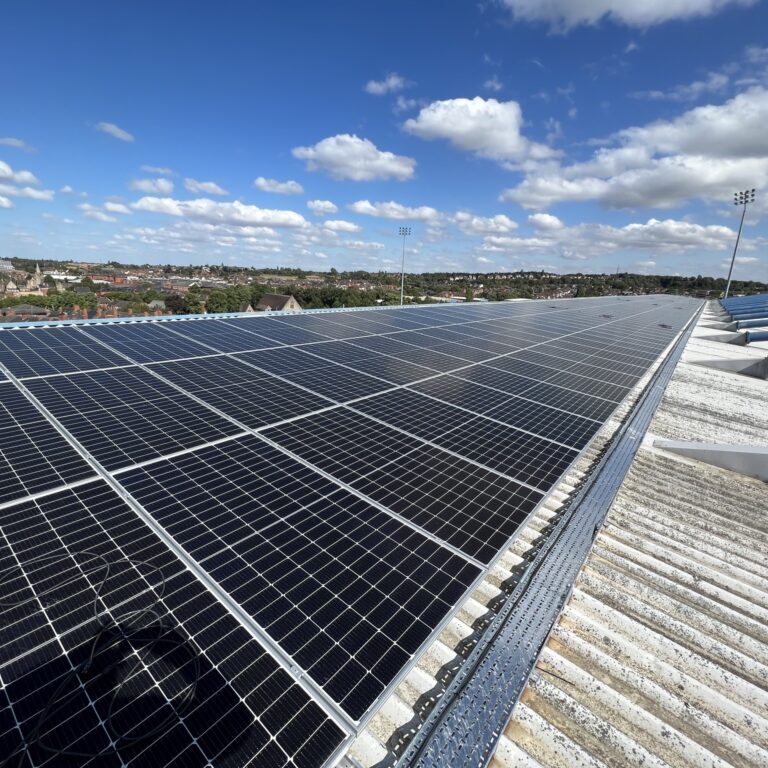As businesses across the UK seek ways to enhance sustainability and reduce their carbon footprints, commercial solar energy solutions are emerging as a key strategy. The environmental impact of commercial solar energy solutions is profound, offering numerous benefits that go beyond just reducing energy bills. In this article, we will explore how commercial solar energy solutions contribute to a greener environment and why investing in them is a smart choice for UK businesses.
Understanding Commercial Solar Energy Solutions
Commercial solar energy solutions involve the installation of solar panels on commercial properties to generate electricity from sunlight. This renewable energy source helps businesses reduce their reliance on fossil fuels and cut down on greenhouse gas emissions. The shift towards commercial solar energy solutions is driven by the need to combat climate change and promote environmental stewardship.
Reduction in Greenhouse Gas Emissions
One of the most significant environmental impacts of commercial solar energy solutions is the reduction in greenhouse gas emissions. Unlike fossil fuels, solar power generation does not produce carbon dioxide (CO2) or other harmful pollutants. By adopting commercial solar energy solutions, businesses can significantly lower their carbon footprint and contribute to the UK’s climate goals. According to the Carbon Trust, each kilowatt-hour of solar electricity produced can reduce CO2 emissions by approximately 0.5 kilograms.
Decreased Dependence on Fossil Fuels
Commercial solar energy solutions help decrease reliance on fossil fuels, which are a major source of air pollution and environmental degradation. Fossil fuels such as coal, oil, and natural gas release pollutants and greenhouse gases when burned for energy. By investing in commercial solar energy solutions, businesses can reduce their dependence on these non-renewable resources and support the transition to a more sustainable energy system. This shift not only benefits the environment but also helps in stabilizing energy prices and reducing supply chain risks associated with fossil fuels.
Conservation of Natural Resources
Solar power is a renewable resource, meaning it can be replenished naturally and is not subject to depletion. By choosing commercial solar energy solutions, businesses contribute to the conservation of natural resources. Unlike conventional energy sources that require extensive mining, drilling, and extraction processes, solar energy harnesses the power of the sun, which is abundant and inexhaustible. This conservation of resources is crucial for protecting ecosystems and preserving the environment for future generations.
Lowering Air and Water Pollution
The installation of commercial solar energy solutions has a positive impact on air and water quality. Traditional power generation methods, such as coal-fired power plants, emit pollutants that contribute to smog, acid rain, and water contamination. Solar power, on the other hand, generates clean electricity without releasing pollutants into the air or water. By adopting commercial solar energy solutions, businesses help reduce air and water pollution, leading to improved public health and a cleaner environment.
Promoting Sustainable Development
Commercial solar energy solutions play a crucial role in promoting sustainable development. As businesses embrace solar power, they support the broader goal of transitioning to a low-carbon economy. This shift aligns with global sustainability targets and contributes to the achievement of the United Nations Sustainable Development Goals (SDGs), particularly those related to affordable and clean energy, climate action, and sustainable cities and communities. Investing in commercial solar energy solutions helps businesses align their operations with sustainability principles and demonstrate their commitment to environmental responsibility.
Enhancing Energy Resilience
Solar power systems can enhance energy resilience by providing a reliable and stable source of electricity. Commercial solar energy solutions reduce dependence on the grid, which can be vulnerable to outages and disruptions. In the event of a power outage, businesses with solar installations, especially those with battery storage, can continue to operate and maintain essential functions. This increased energy resilience not only supports business continuity but also reduces the environmental impact associated with emergency backup power sources, which are often diesel-based and less eco-friendly.
Encouraging Technological Innovation
The adoption of commercial solar energy solutions drives technological innovation in the renewable energy sector. As demand for solar power increases, advancements in solar technology, energy storage, and grid integration continue to evolve. Innovations such as more efficient photovoltaic cells, improved battery storage systems, and smart grid technologies contribute to the overall effectiveness and sustainability of solar power. By investing in commercial solar energy solutions, businesses support the development of these technologies and contribute to the growth of the green economy.
Reducing the Urban Heat Island Effect
The urban heat island (UHI) effect occurs when urban areas experience higher temperatures than their rural surroundings due to human activities and infrastructure. Commercial solar energy solutions can help mitigate the UHI effect by providing shaded areas and reducing the heat absorbed by building materials. Solar panels on rooftops absorb sunlight that would otherwise be absorbed by traditional roofing materials, helping to lower surface temperatures and contribute to cooler urban environments. This cooling effect benefits both businesses and local communities by reducing the need for air conditioning and decreasing energy consumption.
Encouraging Corporate Social Responsibility
Investing in commercial solar energy solutions is a powerful way for businesses to demonstrate corporate social responsibility (CSR). By taking proactive steps to reduce their environmental impact, companies show their commitment to sustainability and ethical practices. This commitment enhances their brand reputation, attracts environmentally-conscious customers, and differentiates them from competitors. Businesses that prioritize commercial solar energy solutions align themselves with modern sustainability values and appeal to stakeholders who value environmental stewardship.
Conclusion
The environmental impact of commercial solar energy solutions is significant and far-reaching. From reducing greenhouse gas emissions and conserving natural resources to lowering air and water pollution, the benefits of solar power are undeniable. For UK businesses looking to enhance their sustainability efforts and reduce their carbon footprint, investing in commercial solar energy solutions is a smart and impactful choice. By embracing solar power, businesses not only contribute to a greener environment but also position themselves as leaders in the transition to a sustainable energy future.



